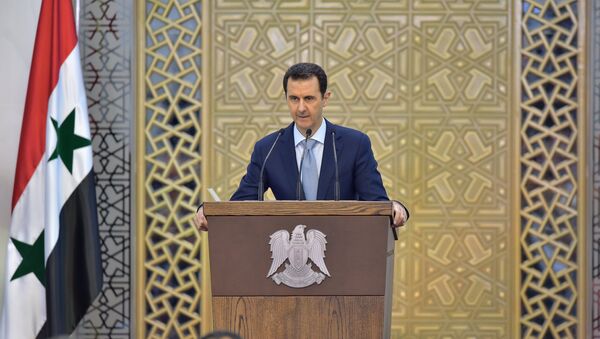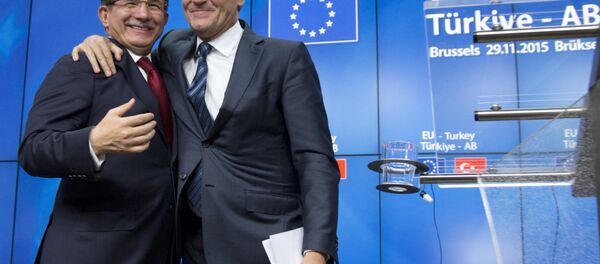"Since the beginning of that [US-led] coalition, if you want to talk about facts, not opinion […] ISIS (Islamic State group) has expanded and the recruiting from around the world has increased," President Assad told Czech TV.
On the day British MPs vote to whether or not join its allies and launch airstrikes against Daesh, the interview held in Damascus has been republished on newsites across Europe.
In the interview, Assad praises military intervention by Russia: "Since the participation of Russia in the same fight, so-called against terrorism, ISIS has been shrinking. And al-Nusra [Nusra Front] of course and the other terrorist groups. So this is reality. The facts are telling."
Assad has also accused the UK, US, Saudi Arabia, Qatar and others of supporting terrorists and condemned Turkish President Recap Tayyip Erdogan over the downing of a Russian fighter jet near the Syrian-Turkey border, saying Erdogan was putting "obstacles in front of any success" against Daesh.
Pres. #Assad to #Czech TV: #ISIS has shrunk since the beginning of #Russian involvement, while it had expanded under the #US led coalition.
— Syrian Presidency (@Presidency_Sy) December 1, 2015
Turkey has been accused of buying oil from Daesh-run oilfields in Syria, helping to finance the terrorist group. A claim reiterated by Marcus Papadoplous, editor of Politics First magazine, who told Sputnik in a recent interview that Turkey has been buying oil from Islamic State oilfields in Syria to boost Daesh's army:
"Why would Turkey buy an ISIL oil field in Syria? Not because of its benefits — but because it enables the Turks to sustain the war against the Syrian government and army. Erdogan is an emphatic opponent of the Free Syrian Army and the Turkish government is using ISIL to fight them," Papadopolous told Sputnik.
Erdogan has denied the accusations. Meanwhile, Turkey has reached an agreement with the European Union to contain refugees from Syria, to stop them from traveling on to Europe, in return for US$3.2 billion and relaxed visa restrictions for Turkish citizens.
Asked by the Czech TV broadcaster for his thoughts on the migration crisis, Assad said: "The feeling is very sad. Especially if you think about every person of those Syrians who left Syria has [a] sad story behind them.
"It reflects the hardship of the Syrians during the crisis. From this [rational] way of looking at the situation, it's a loss."
More than 200,000 people have fled Syria in the last four years, many of them with their sights set on reaching Europe.




